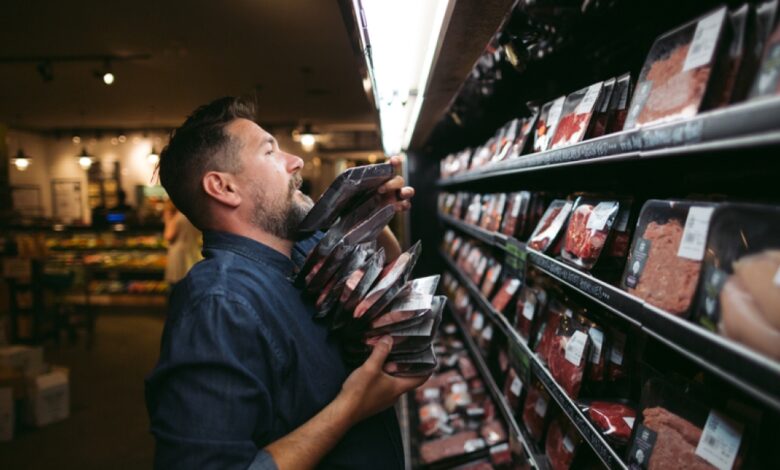
Do’s and Don’ts of Grocery Shopping in Bulk
[ad_1]
Everybody likes to save money anywhere possible. Grocery shopping is of particular interest to many money savers, because food and grocery purchases are one of the highest monthly expenses for most people. There are many different ways to save money on your overall food purchases, including eating out less, using coupons and limiting impulse purchases. Buying in bulk is another way you can save money while grocery shopping and here we will look at some of the do’s and don’ts of grocery shopping in bulk.
What is Bulk Grocery Shopping?
At its simplest, bulk grocery shopping is the idea to stock up on certain products when the price is low. When a particular product goes on sale, buy several weeks or months worth, so that you don’t have to buy it until it goes on sale again. While grocery shopping in bulk is easier for people with larger houses and more storage space, even apartment dwellers can get creative with space requirements.
What to buy in bulk (and what to avoid)
Naturally, certain types of foods lend themselves much better to buying in bulk. Perishable items like milk, bread or fresh produce will likely go bad before you’re able to eat it. In some cases there are alternatives (canned fruit, dried cheese, egg substitutes) that you might choose to buy instead, but that will be something you’ll want to decide on a case-by-case basis. Here are a few products that work to buy in bulk:
- Spices and condiments
- Staples like rice, flour and sugar
- Meat (if you have sufficient freezer space to store it)
- Paper products like napkins, toilet paper and paper towels
- Beans and Lentils
- Olive oil
- Dry pasta
Make sure you check on the expiration and good-until dates to minimize food waste.
Compare the ACTUAL prices
One strategy that works for many people is to keep a price book of how much the items you buy the most cost. Historically this was an actual notebook, but nowadays most people use apps or note taking on a phone or tablet. No matter how you keep track of prices, it’s very important to do it so that you know when a sale is actually a sale. Having a price book helps you know the difference between the normal price, the sale price and the “back up the truck and buy a year’s supply” price.
When you’re comparing the prices, it’s important to look at the actual unit price as opposed to the sticker price. To calculate unit price, divide the sticker price by the total amount of that product. A $1.50 jar of pasta sauce that contains 15 oz. has a unit price of 10 cents per ounce. Using the unit price helps you compare the cost of different sizes of the same product. Buying in bulk often (but not always) has a cheaper unit price.
Grocery stores vs. warehouse clubs
Warehouse clubs like Costco or Sam’s Club are some of the poster children for buying in bulk. These clubs pretty much only sell in bulk, and in many cases you can get cheaper food by shopping there, even taking into account the fact that you have to pay a membership fee to access the deals at warehouse clubs.
But that doesn’t mean that a savvy grocery shopper should completely stop shopping at grocery stores. There are two common problems for shopping at warehouse clubs. First of all is food wastage — do you actually NEED a 64 ounce jar of pickles? Yes, it may have a lower unit case than a smaller jar but if you throw away the jar when it’s only halfway used, you’ll find yourself wasting money. The second reason is that you may find yourself eating your bulk cookies or Pop-Tarts at a faster rate just because you have more of them in the house. Again, if you eat more than you need to (or want to), you end up spending more money.
This is where keeping a price book makes a lot of sense. Comparing the unit prices for grocery stores to warehouse clubs helps you make a more informed decision about when grocery shopping in bulk makes sense for you. It’s possible that a smaller size on sale with a coupon at a grocery store will have a lower unit price than the bulk version at a warehouse club. Keep in mind that most warehouse clubs only sell the name brand on many products, whereas the grocery store generic brand will be cheaper.
The Bottom Line
Bulk grocery shopping isn’t for everyone, but it can make sense as one more tool to put in your money-saving toolbox. Keep a price book so that you have an understanding of what makes something a good candidate for buying in a bulk. Check expiration dates and calculate how much and how fast you’ll eat something to minimize food wasting. Having to throw away food that has gone bad not only wastes the food, it can often counteract any financial savings you got from buying in bulk.
Related
Dan Miller (89 Posts)
Dan Miller is a freelance writer and founder of PointsWithACrew.com, a site that helps families to travel for free / cheap. His home base is in Cincinnati, but he tries to travel the world as much as possible with his wife and 6 kids.
Links
[ad_2]





